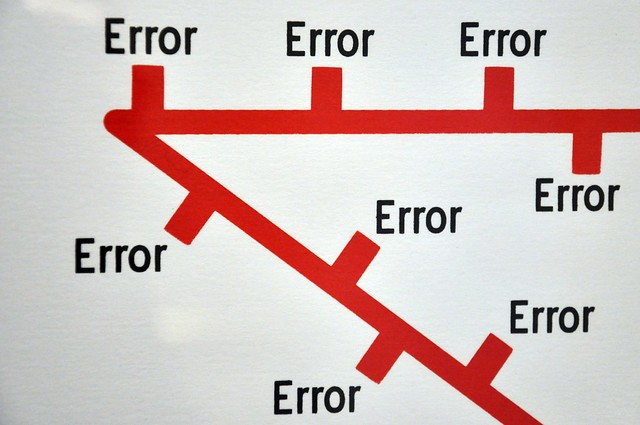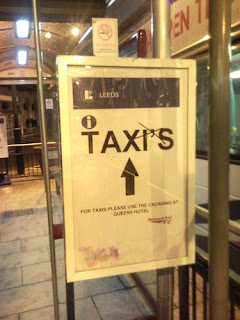 |
| The Mona Lisa, one of the most famous portraits in the world. I can ask "What is it like?" and "What does it look like?" but NOT "How is it?" Why not? Continue reading to find the answer! |
Hello, and welcome back to Mistake Monday! If you're in Costa Rica and had a
break last week, I hope it was relaxing.
Today's error is basic but still commonly causes confusion even for intermediate or advanced speakers. We'll look at how to use phrases like "How is...?" and "How are...?"-- and how not to use them, too! We'll also talk about "What is (s)he like?" and "What does (s)he look like?"
First of all, if I ask...
"How are you?"
...how do you respond? That's easy, right? You probably learned on your first day of English class that the response to this is something like "I'm fine, thanks" or "I'm O.K." In other words, "How are you?" asks for your temporary condition or feelings. So, if I ask...
"How is she?" or "How is he?"
...how should you respond? Obviously, it's the same question, but with a different subject. You can say something like "She is fine" or "He is sick." But I think this is confusing, especially for Spanish speakers, because there are two Spanish phrases that are similar:
"¿Cómo es?" is used for physical descriptions or talking about personality.
"¿Cómo está?" is commonly used to describe temporary conditions or feelings.
The phrase "How is he?" could be literally translated into either of these phrases, but it really means "¿Cómo está?" If you want to say "¿Cómo es?" then what should you say? That's right, you should say:
"What is she like?" or "What is he like?"
If you only want a physical description, and not personality, you can also ask:
"What does she look like?" or "What does he look like?"
If you remember when to use these phrases, then you should be able to avoid this confusion.
As a side note, I noticed another similar phrase that causes problems in my classes. Sometimes I start my class by asking:
"How is everyone?" or "How is everybody?"
This is basically the same question, but instead of talking about one person, I'm talking about a group of people. "Everyone" in this context means "all of my students." It just looks strange because "everybody" refers to a group, but grammatically, it's singular. Just think of the word "every" as considering each individual person in a group.
So, to practice, see if you can complete this dialogue between a teacher and her students:
Ms. Bloom: Good afternoon, class!
Students: Good afternoon.
Ms. Bloom: (1)________________ ?
Students: Fine, thanks!
Ms. Bloom: Good to hear. Now, who's absent? Where's Jane?
Ron: She's still in the hospital, remember?
Ms. Bloom: Oh, that's right! I forgot about her broken leg. Did you talk to her? (2)________________ ?
Ron: She's doing better. She should be out soon, at least according to Dr. Jackson.
Ms. Bloom: Dr. Jackson? I know a Dr. Jackson who works at the hospital. Do you mean Sheila Jackson?
Ron: Ummm, I'm not sure. I don't know her first name.
Ms. Bloom: (3)________________ ?
Ron: I'm not very sure. She seemed nice, but she was also very professional. I didn't really talk to her much.
Ms. Bloom: OK, but can you describe her? (4)________________ ?
Ron: Oh! Well, she's fairly short, she has dark skin, and she has long, wavy hair. She's very pretty... she has a wonderful smile with perfect teeth and soft, smooth lips, and she's got big eyes that are the color of the ocean at night. She also has an incredible body-- I think she must work out!
Ms. Bloom: Well, that doesn't sound like the Dr. Jackson I know, but it does sound like you want to get to know this other Dr. Jackson! Haha!
So, what were your answers? Here are some suggestions:
(1) - How is everyone? (You can also say something like "How is everybody?" "How are you all doing?" or "How are all of you?")
(2) - How is she? (Informally, you may also hear people say "How is she doing?")
(3) - What is she like?
(4) - What does she look like? ("What is she like?" isn't a good option here, because Ms. Bloom and Ron are giving a physical description of Dr. Jackson, but not talking about her personality.)
That's all for today. If you have any questions or comments, please leave a comment below or send an email. Thanks for reading, and have a good day!














